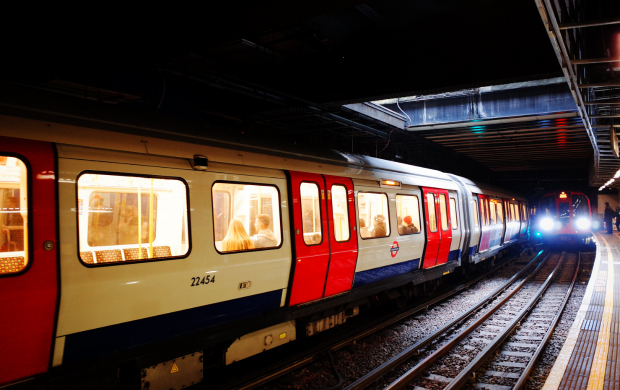If you take the London Underground to work every day, or even just use it at weekends, then you’ll surely be used to the sight of big and bold gambling ads plastered on the walls or the inside of the Tube carriage.
But this may be about to change thanks to incoming legislation from London authorities. Mayor Sadiq Khan recently came under pressure to force through the changes that include the banning of all betting-related ads on public transport.
Despite significantly delays, we may see the legislation kick in over the next few months, and betting ads to disappear from the view of public transport travellers…potentially forever.
Why the ban could be happening
An advertising ban wouldn’t be the first time the government has targeting betting promotions.
In 2020, the Gambling Commission introduced stricter rules around gambling advertising, particularly regarding the protection of vulnerable people. These included a watershed for television adverts, meaning they couldn’t be shown before 9pm to limit their exposure to younger viewers.
The move prompted more concern about healthy educational material about these promotions, which is why it’s now much easier to find pages that help you find things like the best no deposit bonuses of the UK in 2024, with lower wagering requirements that don’t exploit players. These resources can help inform gamblers and potentially reduce the risk of addiction by focusing on responsible play.
However, the question remains: will a complete ban on public transport adverts simply push gambling further underground, onto less regulated online spaces?
Key details of the ban
Sadiq Khan, the Mayor of London, has come under pressure from the London Assembly Health Committee to uphold his 2021 campaign promise of banning gambling advertisements on the Tube and other Transport for London (TfL) services.
Despite TfL raking in £663,640 from such adverts in the fiscal year 2022-23, out of an overall revenue of £4.3 billion, Khan’s administration has encountered a legal hurdle concerning the definition of “harmful gambling,” delaying any official ruling.
However, the general outlook is that the Mayor’s office will overcome this obstacle. Addressing the issue recently, Khan stated, “I’ve asked the GLA to do some research into this.” Dr. Tom Coffey, the mayor’s health adviser, affirmed that once the definition was clarified, Khan’s team “will move as swiftly as possible” to execute the ban.
Criticism
As well as legal difficulties, Khan has met criticism from other areas.
Critics, including Rob Blackie, the Liberal Democrat candidate for London mayor, have voiced dissatisfaction with Khan’s handling of his manifesto promises. Blackie remarked, “Sadiq Khan has not generally done a great job of fulfilling his manifesto commitments. This is something that should be easy to do.” Susan Hall, the Conservative mayoral candidate, and Zoe Garbett of the Greens have also been keen to share their perspectives on the matter.
A cross-party report by the health committee stressed that while most gamblers do not suffer from gambling-related harms, problem betting disproportionately affects those from lower socio-economic backgrounds and minority ethnic groups when put in public places, like football stadiums.
Dr. Onkar Sahota, the committee’s Labour chairman, expressed deep concern over London’s problem gambling rate, which is nearly twice the national average, and highlighted the negative impact on families and children.
In 2022, Khan commissioned researchers from Sheffield and Glasgow universities to examine the health implications of gambling advertisements. Although the review found insufficient evidence to prove the harm caused by such ads, it suggested that a ban “could reduce overall harm and mitigate the impact of advertising on gambling-related inequalities.”
Professor Rebecca Cassidy of Goldsmiths, University of London, an anthropologist specializing in gambling, also emphasized the challenge of quantifying the relationship between advertising exposure and gambling behavior.
However, she called for Khan to enforce the ban, citing evidence suggesting its potential benefits for public health. Cassidy also called for a new Gambling Act to grant individuals more control over their exposure to gambling advertising.
Action in other parts of the UK
Concern over gambling ads isn’t just restricted to the English capital, of course.
In a similar vein, Bristol City Council imposed a ban on gambling adverts across council-owned spaces in 2021, alongside prohibitions on advertising for unhealthy food and drinks, alcohol, and payday loans.
The debate over the effectiveness of such bans remains, but with public figures like Khan committed and research suggesting potential benefits, Londoners may soon see a public transport system free from gambling advertisements. This could be the first step towards a wider national conversation about responsible gambling practices and regulations.








